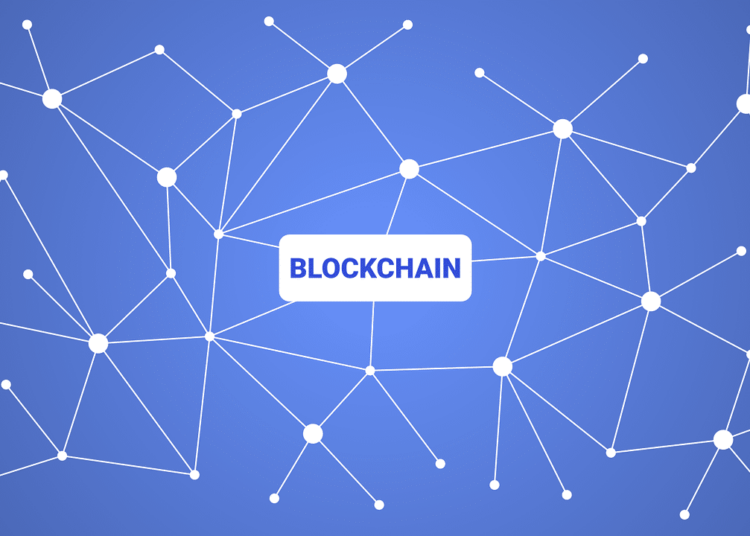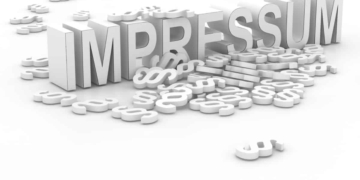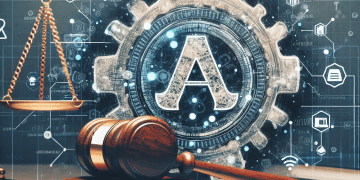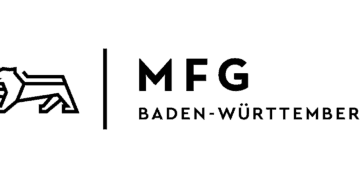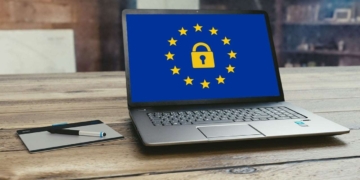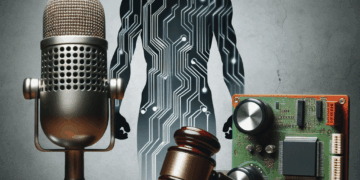Introduction:
It has been a while since the German government published its position paper on blockchain strategy. This document, which is described as setting the course for the token economy, has far-reaching implications for the digital transformation of the economy and society in Germany. I haven’t had a chance to write a post on this yet, as I was tied up in a blockchain permanent assignment late last year and haven’t had much time to blog.
Blockchain technology, which is considered one of the most discussed innovations, offers a wide field of innovative applications and new forms of cooperation due to its characteristics such as decentralization, reliability and anti-counterfeiting. The federal government has recognized that all conceivable values, rights, and debt relationships to tangible and intangible assets can be represented by tokens and their tradability and exchangeability can potentially be simplified.
The German government’s strategy lays out concrete measures in five areas of action and maps a holistic view of blockchain technology. It outlines the federal government’s goals and principles related to blockchain technology and presents concrete measures in five areas of action. A broad consultation process in spring 2019 formed an essential basis for the development of the strategy, with 158 experts and representatives of organizations submitting comments.
Now I would like to fill this gap and summarize the legal aspects of the federal government’s blockchain strategy. In particular, I will discuss the legal framework that is set for innovations based on blockchain technology and how the federal government weighs the potential and risks of the technology.
The federal government and blockchain-based currencies
The federal government notes that blockchain-based currencies are not issued by any central bank or public entity and are generally not pegged to a government currency. Nevertheless, they are accepted in part by individuals or legal entities as a medium of exchange. The federal government recognizes that blockchain technology has the potential to fundamentally change the way values, rights, and obligations to tangible and intangible assets are represented. The use of tokens can potentially facilitate trade and interchangeability of these goods. This opens up a wide field of innovative application possibilities and new forms of cooperation.
Blockchain applications in the creative industries
Blockchain technology also offers a wide range of potential applications in the creative industries. It can be used, for example, to manage and protect copyrights. By using smart contracts, royalties can be processed automatically and transparently. This can help strengthen the rights of creative professionals while increasing transparency and efficiency in the creative industries.
The federal government recognizes the potential of blockchain technology to fundamentally change the way values, rights, and obligations to tangible and intangible assets are represented. The use of tokens can potentially facilitate trade and interchangeability of these goods. This opens up a broad field of innovative application possibilities and new forms of cooperation, including in the creative industries.
Blockchain technology was developed based on the vision of a decentralized distributed system that would replace centralized instances and enable transactions directly between participants in the network. This principle can also be applied in the creative industries, for example, by making it possible to manage copyrights in a decentralized and transparent manner.
In addition, the German government sees blockchain technology as a building block for the Internet of the future. It is one of the most talked-about innovations in the digital transformation of business and society. With properties such as decentralization, reliability and counterfeit-proofing, it opens up a wide field of innovative applications and new forms of cooperation that could also revolutionize the creative industries.
Blockchain technology in corporate and cooperative law
Blockchain technology also has implications for corporate and cooperative law. It enables the creation of decentralized autonomous organizations (DAOs) based on smart contracts. These DAOs can be understood as a new form of enterprise or cooperative that does not require centralized management. However, this also raises new legal issues, such as liability and representation of DAOs.
In one of my earlier blog posts. “Set up a blockchain limited liability company? Can you do that?” I discussed the possibility of a blockchain-based limited liability company. The idea of a blockchain limited liability company presents us lawyers with an exciting challenge. A limited liability company can only be established, amended and administered with the assistance of a notary public. There is no provision for the transfer of shares by handing over a security. This would only be possible with a stock corporation.
However, there is extensive freedom of design for the regulations in the internal relationship of the GmbH pursuant to §§ 46 et seq. GmbHG (German Limited Liability Companies Act). So things like third-party participation via trust structures or silent partnerships, which can also influence the voting rights of shareholders entered in the commercial register, could certainly be mapped on a blockchain. This could be interesting for startups to tie investors to the company without making them full shareholders.
The other list of shareholders could also be kept on a blockchain, even if the law would not – yet – exempt the managing directors from the obligation to create it. However, the legislature could change this. This could be useful because, for example, an authorization in the previous submission to the notary could be solved using blockchain technology.
Blockchain technology could also be used for internal use in a limited liability company. In addition to voting rights, the use of a charter in the form of a smart contract would also be conceivable. Ultimately, things such as profit distribution, responsibilities within the framework of rules of procedure, internal financial limits of a managing director or shareholders’ meetings (including invitations to these) + voting rights could be mapped automatically and securely.
Blockchain technology in the financial market
Blockchain technology has the potential to fundamentally change the financial market. It enables the creation of cryptocurrencies such as Bitcoin, which can serve as a new form of payment. In addition, complex financial transactions can be automated and transparently processed through the use of smart contracts. This can help to increase efficiency and transparency in the financial market.
The federal government recognizes that blockchain technology can fundamentally change the way values, rights, and obligations to tangible and intangible assets are represented. The use of tokens can potentially facilitate trade and interchangeability of these goods. This opens up a broad field of innovative application possibilities and new forms of cooperation, including in the financial sector.
Blockchain technology was developed based on the vision of a decentralized distributed system that would replace centralized instances and enable transactions directly between participants in the network. The best-known – by no means the only – use case is, of course, Bitcoin. However, with the surge in cryptocurrency prices and the novel financing form of so-called Initial Coin Offerings (ICOs), public interest in blockchain technology grew strongly – and will continue to do so.
Blockchain technology and data protection
The German government emphasizes that blockchain technology must be designed and applied in a data protection-compliant manner. It currently sees no need for changes to the General Data Protection Regulation (GDPR) with regard to blockchain technology. Instead, existing technical solutions such as the use of hash values, pseudonymization, and zero-knowledge proof, as well as the principles of privacy-by-design and privacy-by-default, should be applied.
The German government plans to hold a round table on blockchain and data protection to clarify open questions and identify possible solutions. This round table is intended to take stock of the topic area of blockchain and data protection. In this format, both the positive features of blockchain from a data protection perspective can be highlighted and data protection requirements related to blockchain use cases can be clarified.
The following questions should be addressed in this context: Which data stored on a blockchain constitute personal data? How is the right to erasure guaranteed when using blockchain technology? How is the right of access to one’s own data guaranteed by a central body?
The Round Table offers an exchange format to examine frequently occurring practical case constellations and, where possible, to identify possible solutions. The results of the work will be communicated with the aim of applying existing guidance from data protection supervisory authorities to practice in the blockchain context and, where appropriate, to contribute proposals for additional guidance from data protection supervisory authorities.
The German government will also examine whether or to what extent irreversibility as well as proof of immutability can be recognized in the storage of data and documents with hash values when providing evidence. This could help to design blockchain applications in a privacy-compliant manner and clarify open questions regarding privacy requirements for blockchain applications.
International arbitration board for blockchain networks
The federal government is examining the suitability, feasibility, and potential of an international arbitration body for cross-border blockchain networks. The move is part of an effort to leverage blockchain technology in a way that meets both user needs and legal and regulatory requirements.
The idea of such an arbitration board is to provide a mechanism for resolving conflicts that may arise in cross-border blockchain networks. These conflicts can be complex and difficult to resolve due to the decentralized and global nature of blockchain technology.
The arbitration service could play an important role in building trust and security in the use of blockchain technologies by providing a fair and efficient process for resolving disputes. It could also help set standards for interoperability and establish governance structures for decentralized networks.
The federal government recognizes that the creation of such a mediation body will require careful consideration and coordination to ensure that it functions effectively and protects the rights and interests of all parties involved. Therefore, examining the feasibility and potential of such a mediation body is an important step in this process.
Graduation:
The federal government’s blockchain strategy shows that the technology has potential in many areas and that the government is willing to explore and promote its use. However, it will also consider the necessary legal framework to ensure that the technology is used safely and responsibly.
The federal government recognizes that blockchain technology has the potential to fundamentally change the way values, rights, and obligations to tangible and intangible assets are represented. The use of tokens can potentially facilitate trade and interchangeability of these goods. This opens up a wide field of innovative application possibilities and new forms of cooperation.
It will be exciting to see how the blockchain strategy evolves in the coming years and what impact it will have on the legal landscape in Germany. The German government has already announced that it will set the framework conditions for innovations based on blockchain technology. Due to the dynamic development of the technology, a constant review of the framework is necessary with regard to its topicality.






















